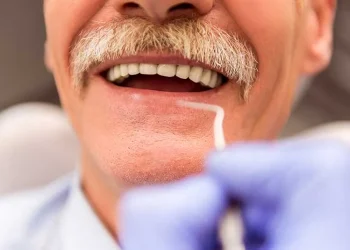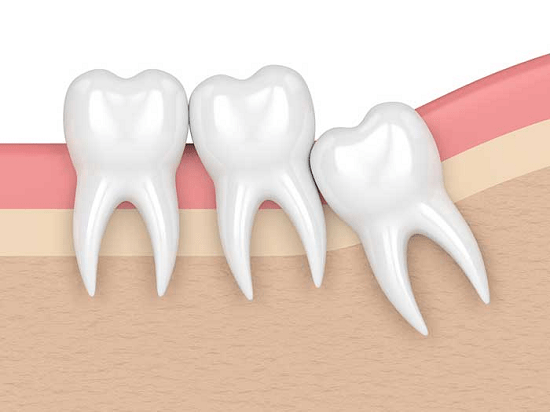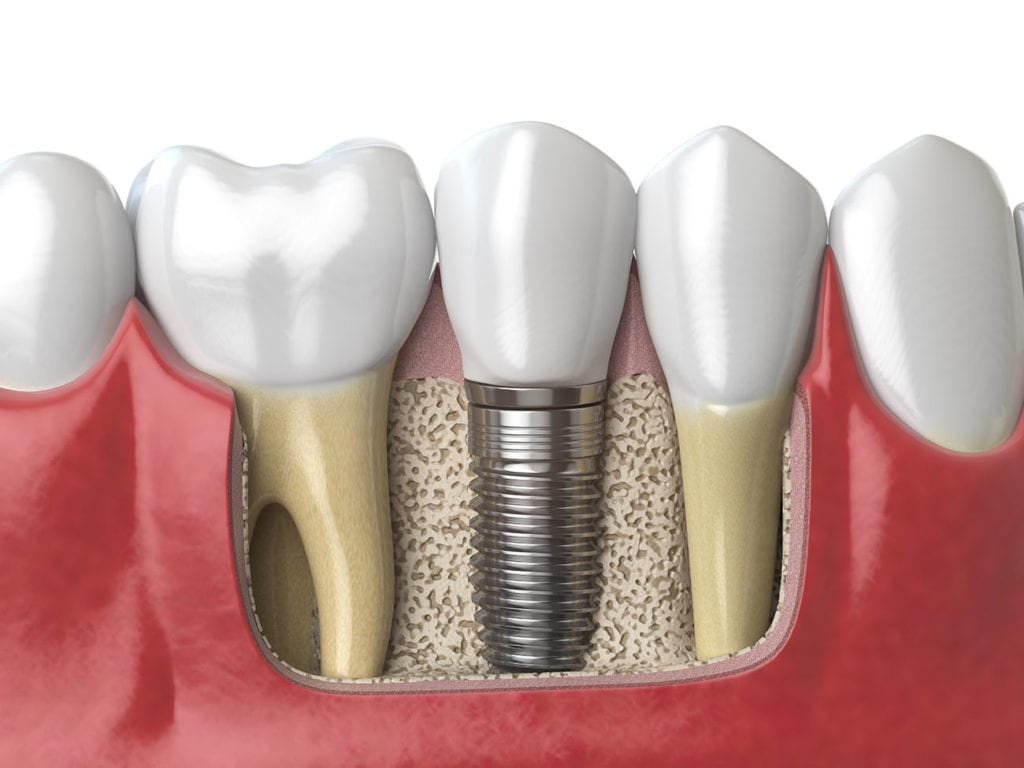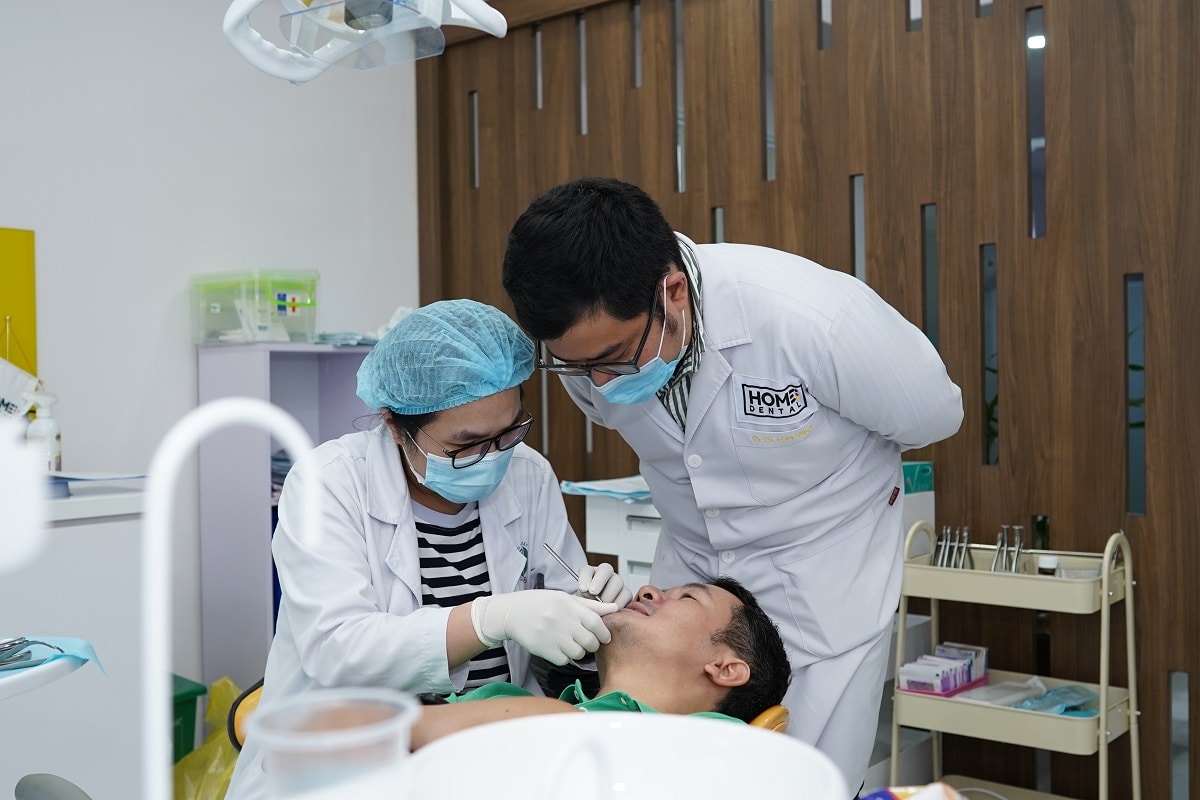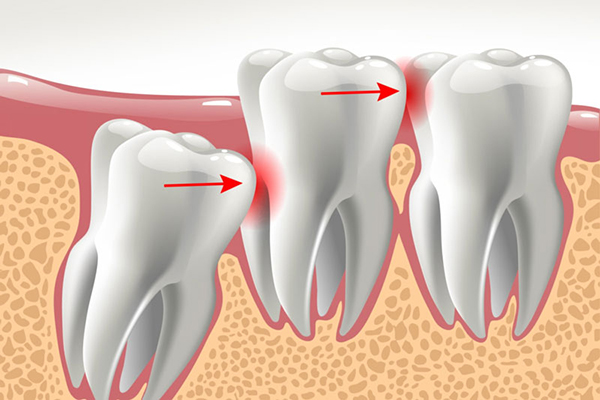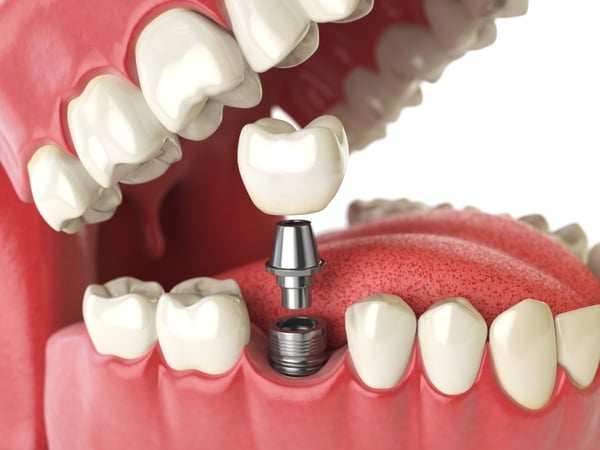Contents
How Early Do Wisdom Teeth Come In?
Wisdom teeth, also known as third molars, are the last set of teeth to develop in the mouth. They typically emerge in the late teenage years or early twenties. However, not everyone develops wisdom teeth, and those who do may experience different growth patterns. In this blog post, we’ll discuss when wisdom teeth grow and what factors can impact their development.

Wisdom Teeth’s Development Timeline
Wisdom teeth, also known as third molars, are the last set of teeth that typically begin to develop in the jawbone during early adolescence. These teeth are usually expected to grow between the ages of 17 and 25, although there are cases where growth may be delayed and some people may develop them in their 30s or 40s. The emergence of these teeth can be a gradual and painful process, with the teeth partially erupting or growing in at odd angles. This often leads to discomfort, pain, swelling, and even infection, which can be quite challenging to manage. It is not uncommon for people to experience significant discomfort and pain as a result of their wisdom teeth, and this can last for several weeks or even months before the teeth are finally fully grown in and the pain subsides. As a result, it is important to keep an eye on the development of these teeth and to seek medical attention if symptoms persist or worsen over time.
Early Wisdom Teeth Growth
While it is rare, some children may begin to develop wisdom teeth as early as age 10 or 11. This may occur due to various factors, such as genetics or dietary habits. It is important to note that early wisdom teeth growth is not necessarily a cause for concern, as long as the teeth are growing properly. In fact, some dentists believe that early wisdom teeth growth may actually be beneficial, as it can help prevent overcrowding of the teeth later on in life.
However, if the teeth are growing in at odd angles or causing discomfort, it is important to consult with a dentist. This is because improperly growing wisdom teeth can lead to a variety of dental problems, such as infections or damage to surrounding teeth. In some cases, the dentist may recommend removing the wisdom teeth to prevent further complications.
In addition, it is important for parents to monitor their children’s dental development closely, and to ensure that they receive regular dental checkups. This can help identify any potential dental issues early on, and allow for prompt treatment before they become more serious.

Signs of Early Wisdom Teeth in Children
Swelling and Discomfort
One of the most common signs of early wisdom teeth is swelling and discomfort in the gums. This occurs when the wisdom teeth begin to push through the gums, creating pressure and inflammation. The swelling may be accompanied by redness and tenderness, which can cause discomfort and sensitivity in the affected area. As a result, the child may experience difficulty chewing or brushing their teeth, which can lead to further complications such as tooth decay or gum disease. It is important to monitor the progress of wisdom teeth and seek dental care if any symptoms of swelling, discomfort, or tenderness arise. Early detection and treatment can help prevent more serious dental issues down the line.
Changes in Bite
During the emergence of wisdom teeth, there may be several changes that occur in the child’s mouth. These teeth can cause overcrowding, leading to an increase in plaque and tartar build-up, which can result in cavities or gum disease. Additionally, the eruption of wisdom teeth can cause changes in the child’s bite, leading to difficulty in biting or chewing. Furthermore, the discomfort experienced when opening and closing the mouth can result in jaw pain and headaches. Therefore, it is important to monitor the growth of wisdom teeth and seek advice from a dental professional to prevent any significant dental issues.
Crowding
When a child’s mouth is too small to accommodate the wisdom teeth, these teeth may begin to exert pressure on the other teeth, causing them to crowd or overlap, which can lead to dental issues. Misaligned teeth can be difficult to clean, making it easier for food particles and bacteria to get stuck in between teeth, leading to tooth decay and gum disease. Additionally, overlapping teeth can cause discomfort and pain while biting and chewing, as well as difficulty speaking clearly. Therefore, it is important to monitor the growth of wisdom teeth and seek dental advice on whether they need to be removed to prevent potential dental problems and ensure good oral health.
Sinus Pain
In some cases, early wisdom teeth growth can cause sinus pain and pressure, as the roots of the teeth begin to press against the sinuses. This can be a result of the teeth growing at an angle or in a direction that places pressure on the sinus cavity. Additionally, the impacted teeth can create a breeding ground for bacteria, leading to sinus infections and other complications. If left untreated, these infections can spread to other areas of the body, causing further health problems.
Potential Risks of Early Wisdom Teeth Growth
Increased Risk of Infection
When wisdom teeth begin to emerge, they can create pockets in the gums that can collect bacteria and food particles. If these pockets are not cleaned properly, they can become infected, leading to pain, swelling, and even fever. In children, early wisdom teeth growth can increase the risk of infection, as the teeth are more likely to be covered by gum tissue and difficult to clean properly. It’s important for parents to monitor their child’s oral hygiene and dental health closely to prevent infection.
Crowding and Misalignment
If a child’s mouth is too small to accommodate wisdom teeth, they can begin to crowd the other teeth, leading to misalignment or overlapping. This can cause discomfort, difficulty chewing, and even speech problems. In some cases, early wisdom teeth growth can also lead to the development of cysts or tumors, which can damage the surrounding teeth and bone.
Damage to Adjacent Teeth
When wisdom teeth grow in, they can push against adjacent teeth, causing damage to the roots or even causing them to become loose. In some cases, this can lead to the need for additional dental treatment, such as fillings or root canals. Early wisdom teeth growth can increase the risk of damage to adjacent teeth, as the teeth are more likely to be growing in at odd angles or pushing against other teeth.
Should Early Wisdom Teeth be Removed?
The question of whether or not to remove early wisdom teeth is a complex one that depends on various factors. One of the most important considerations is the age of the child. If the child is still quite young, it may be better to wait until the wisdom teeth have fully developed before making any decisions. Additionally, the extent of the growth is an important factor to consider. If the teeth are growing normally and not causing any problems, it may be best to leave them alone. However, if the teeth are growing in at odd angles or causing crowding, discomfort, or pain, it may be necessary to remove them to prevent further complications.
The overall health of the child’s teeth and gums is another important factor to consider when making a decision about early wisdom teeth removal. If the child’s teeth and gums are healthy and strong, it may be possible to delay the removal of the wisdom teeth until a later date. However, if the child is experiencing any dental issues, such as decay or gum disease, it may be necessary to remove the wisdom teeth sooner rather than later.
Ultimately, the decision about whether or not to remove early wisdom teeth should be made on a case-by-case basis. A dental professional can evaluate the child’s situation and make recommendations based on their individual needs and circumstances. It is important to seek the advice of a qualified dental professional to ensure that the best possible decision is made for the child’s long-term dental health.
Take Care of Your Child When Their Wisdom Teeth Grow
When it comes to maintaining your child’s dental health, it’s crucial to keep a close eye on their dental growth, especially related to their wisdom teeth. As a responsible parent, it’s important to be vigilant for any signs of puffiness, discomfort, or changes in their bite pattern. In case of any doubts, you should always consult a dental professional for guidance and advice.
Moreover, encouraging good oral hygiene practices for your children can go a long way in preventing any dental infections or other issues from arising. While the decision to remove wisdom teeth at an early stage should only be made by a qualified dental expert after careful consideration of each individual case, there are various other ways to promote good oral hygiene. For instance, teaching your child how to brush and floss their teeth properly can be a great way to start.
In addition to this, it’s important to schedule regular dental check-ups to monitor your child’s oral health and detect any potential issues before they become serious. Keep in mind that diet plays a significant role in dental health too. Consuming excessive amounts of sugary and acidic foods can lead to tooth decay and other oral health problems.
By being proactive about your child’s dental care, you can ensure that they maintain a healthy and beautiful smile for many years to come. This will help them avoid any unnecessary dental issues that may arise in the future. So, make sure to give your child the best possible dental care and help them develop good oral hygiene habits from an early age.


